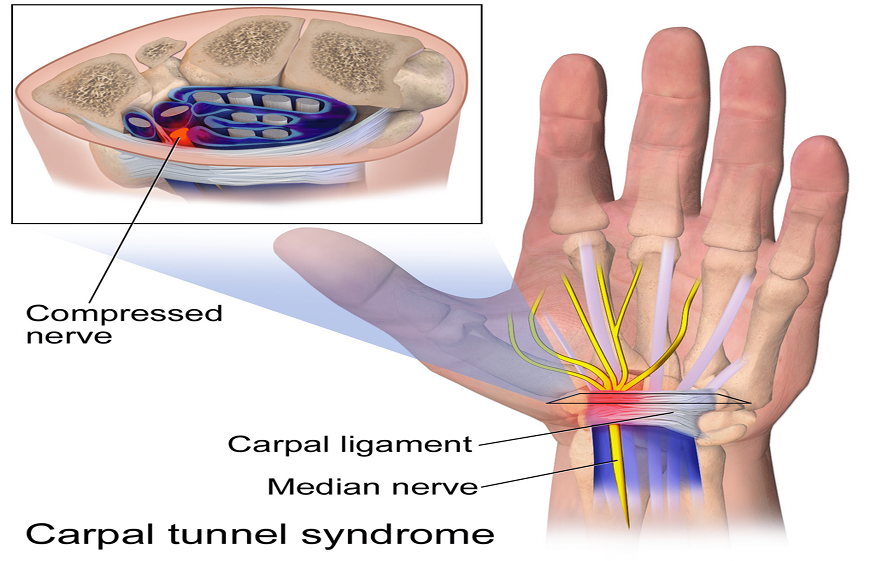
What is Carpal Tunnel Syndrome
Carpal tunnel syndrome (CTS) is the most common upper extremity disorder. It affects approximately 15 million people in the United States each year and is the result of repetitive motion injuries.
Carpal tunnel syndrome is an occupational disease that affects the wrist and hand. It’s caused by repetitive motion, such as typing or playing computer games. CTS can create pain, numbness, and tingling in your hands.
Carpal tunnel syndrome can lead to pain and numbness in your wrist, hand, or forearm. This can make it difficult to perform daily tasks like typing, writing, and using a mouse.
The most common symptoms of CTS include:
- An abnormal feeling in the fingers—like you have something thick between your fingers.
- Pins and needles in your fingers.
- A burning sensation in the palm of your hand or wrist.
- Pain or stiffness in your wrist and fingers.
- Symptoms include pain and numbness in the thumb and index finger, which may get worse over time.
- You may also have pain or tingling in your pinky finger.
There are many ways to prevent carpal tunnel syndrome, including:
- Using ergonomic keyboard and mouse.
- Avoiding repetitive tasks that cause stress on your wrists.
- Stretching your hands and wrists daily.
- Taking breaks between activities that may cause pain or numbness.
- Keep your wrists straight when you’re typing.
- Use a wrist rest when you’re working at your computer for long periods of time.
- Avoid sleeping on your side with one hand under your head (this position puts strain on the median nerve).
What to Do During and After Treatment
- Rest your arm! This is one of the most important things you can do for yourself during this recovery period. Your body needs time to heal itself and regain feeling in these muscles.
- Don’t use tools that put strain on your hands or wrists! Working with tools like scissors or knives will only make matters worse—and if you’re already in pain, they could be dangerous at best! Instead of using these tools when possible, try using a different tool until you feel better.
- Take ibuprofen (or naproxen sodium) before bedtime every night for up to 2 weeks after symptoms first appear.
- Call your hand doctor right away if you feel extreme pain and discomfort.
Choosing a hand doctor is a lot like planning a trip to the dentist. You want to find someone who’s going to take care of you, and you want them to have the equipment, skills, and expertise necessary to do their job. It is a good idea to get more information about them before making an appointment so that you could have time to research their credentials and experience level before showing up at their office. Checking for any reviews from previous patients who went through similar procedures is helpful.
Looking for an orthopedic surgeon in Savannah, Georgia? Ensure that you are going to have a successful surgery and quick recovery by choosing the best hand doctor. Dr. Gregory Kolovich is a brilliant hand doctor/orthopedic surgeon who has received many awards and recognitions. He has completed Doctor of Medicine, cum laude, from the Ohio State University. He also attended Harvard University and focused on Hand and Microsurgery during his fellowship. He codeveloped the Oxos handheld fluoroscopy device and is currently the President of the Georgia Society for Surgery of the Hand.
If you need an excellent and reliable orthopedic surgeon, book an appointment with Dr. Kolovich at Optim Orthopedics. See his 5-star feedback here: Healthgrades


